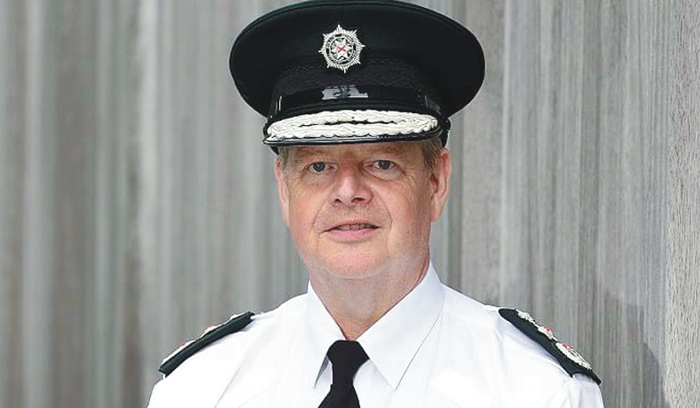PSNI faces ‘complex’ summer of policing parades, says chief constable
The chief constable of the Police Service of Northern Ireland (PSNI) has warned that the policing of parades this summer “will be complex in ways never before experienced”.
In his latest Accountability Report to the Northern Ireland Policing Board, Simon Byrne said they were mindful of the consequences of the policing response to events following recent inspection findings, including a report by the Police Ombudsman for Northern Ireland into the PSNI’s handling of Black Lives Matter protests last year.
This includes a complaint from a member of the public that there were “inconsistencies” in the policing approach when compared with the funeral of Bobby Storey the same year that amounted to “race discrimination”.
There were also claims of “two-tier policing” following the handling of recent loyalist parades as part of the ongoing protest linked to the Northern Ireland Protocol.
“With foreseeable demands, pressures and uncertainty on the horizon, we remain mindful of recent inspection and prosecutorial findings and continue to assess the consequence for the policing response to events over the summer period,” said Mr Byrne in his report.
“Against the backdrop of widespread and at times contrasting critique in the past year, it is foreseeable that the policing response to bonfires and parading will be complex, in ways that have never before been experienced.”
Mr Byrne said they have adopted a “structured advanced planning approach”, consistent with national policing practice guidelines and coordinated through a ministerial led multi-agency group.
“We welcome this shared approach to planning and resolution, in the interest of better outcomes,” he added.
“Between the beginning of April and mid-June 2021, we have become aware of 40 processions which relate to the Northern Ireland Protocol. Thirty of these were unnotified processions. We continue to approach these events, proportionately and in line with nationally adopted 4Es policing guidance using engagement, explanation, encouragement and enforcement by way of evidence gathering and subsequent report to the Public Prosecution Service (PPS).
“Investigations are continuing into all of the un-notified processions which have taken place in relation to suspected breaches of the Public Processions (NI) Act 1998 and Health Protection Regulations.
“To date, four investigative files have been submitted for independent consideration by the Public Prosecution Service.”
The report by Police Ombudsman Marie Anderson, published in December, said claims that the police handling of Black Lives Matter protests and a counter demonstration last year amounted to unfairness and discrimination were justified.
However, she believed this was not intentional and not based on race or ethnicity.
She said the situation had come about due to a failure by police to fully understand their human rights obligations.
The protests were held at a time when Covid-19 public health regulations placed restrictions on such gatherings.
Ms Anderson made a number of recommendations, which included that in future police consider adopting a human rights-based approach to the policing of protests, which would involve balancing competing rights and risks.
She is also investigating whether police engagement with organisers in advance of the protests “was consistent with the PSNI’s approach to the organisers of Mr Storey’s funeral”.
The funeral of senior republican Mr Storey was one of the most controversial events to occur during the coronavirus pandemic in Northern Ireland.
More than 1,000 people lined the streets for the funeral procession on June 30, 2020, including senior Sinn Fein representatives, despite strict rules limiting public gatherings.
Following the decision by the PPS not to prosecute 24 individuals reported in connection with attendance at the funeral, Mr Byrne faced suggestions that the PSNI had “entered into an agreement” with the organisers.
This was denied and while they did engage with the organisers, he said this was only “to fulfil our key responsibility to manage public safety”.
A report published in May by Her Majesty’s Inspectorate of Constabulary and Fire and Rescue Services (HMICFRS) into the PSNI’s handling of the funeral said it prioritised public security over enforcement of Covid-19 Regulations to avoid “biasing one community over another”.
HMICFRS said it understood why the PSNI took this approach, given the likelihood of tensions, and because Covid-19 Regulations were confusing.
However, it recommended that in future the PSNI should broadly communicate the 4Es approach whenever breaches of the Covid-19 Regulations are anticipated at events; make and retain proper records of conversations with event organisers; and carry out a formal debrief at the end of any policing operations.
The inspectorate also agreed with recommendations made by the PPS, including that the PSNI should engage with event organisers as early as possible to discuss risk assessments, and that the service should identify professional contacts they can engage with to interpret changes in the law that could affect the policing of an event.


